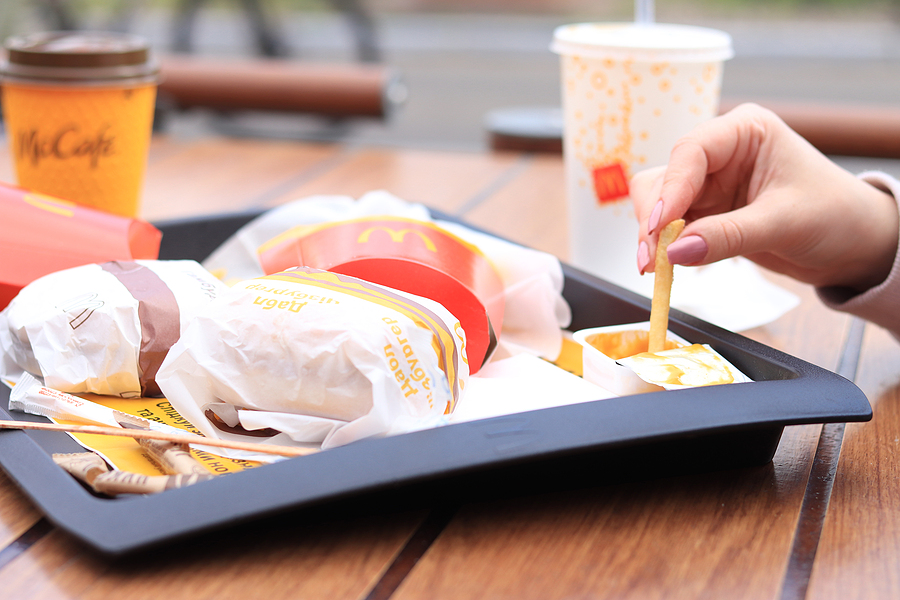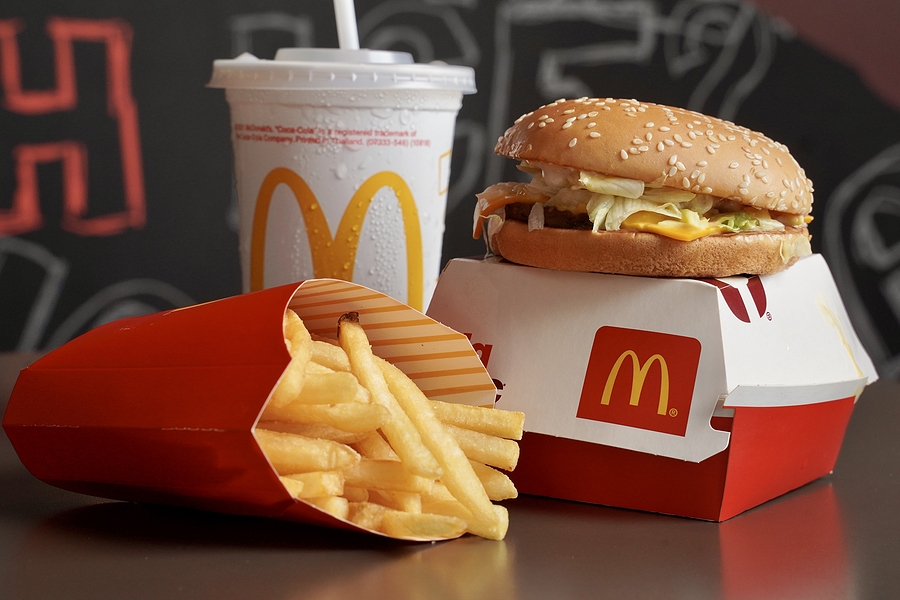Article Summary:
- Over the past few years, major fast-food chains, including McDonald’s, have faced a surge in false advertising lawsuits, with consumers alleging discrepancies between advertised products and actual items.
- Between 2020 and 2022, over 200 class action lawsuits related to false advertising in food products were filed, highlighting growing consumer distrust.
- McDonald’s is accused of misrepresenting the size of their hamburger patties and toppings, with claims that advertisements show patties 15 to 20% larger than reality.
- While the number of lawsuits has increased, success for plaintiffs is challenging, requiring them to prove that advertisements misled a “reasonable consumer” and did not just exaggerate.
In recent times, there has been a surge in false advertising lawsuits against major food chains, like McDonald’s, Burger King, and Wendy’s. Consumers, with a discerning eye, are increasingly challenging the disparity between the tantalizing images in advertisements and the actual products they receive.
Between 2020 and 2022, a staggering 200 class action lawsuits concerning false advertising in food products were filed, as reported by QSR magazine. This rising trend showcases a growing distrust between the modern consumer and fast-food chains, with the former demanding transparency and truth in advertising. To put it simply, consumers are sick of being lied to by fast food giants and other corporations.

The McDonald’s Allegations
The Russo Firm has also filed suit against McDonald’s. The lawsuit alleges that McDonald’s advertisements misrepresent the size of their hamburger patties and the quantity of toppings used. Using evidence from platforms like YouTube and Twitter, the plaintiffs contend that McDonald’s burger advertisements showcase 15 to 20% larger patties than the actual product.
Such allegations, if proven true, could have severe implications for the brand image of McDonald’s. The company, known for its global reach and influence, would face legal repercussions and decreased consumer trust.
The lawsuit specifically alleges that McDonald’s uses the following deceptive advertising practices:
- Close-up photos: McDonald’s advertisements often feature close-up photos of its hamburgers that make them appear larger than they actually are.
- Oversized buns: McDonald’s uses oversized buns to make its hamburgers appear larger than they actually are.
- Hidden ingredients: McDonald’s hides ingredients, such as lettuce and pickles, under the meat patty to make the hamburgers appear larger and more filling than they actually are.
The Broader Landscape: Other Fast Food Chains Facing Lawsuits
McDonald’s is not alone in facing such allegations. Wendy’s, another major player in the fast-food industry, has been accused of using undercooked patties in their advertisements to make the burgers appear larger, as reported by The Washington Post.
Similarly, Burger King faced allegations of advertising their burgers to be 35% beefier than they actually are. The company’s defense, as articulated in court filings, is that each sandwich is handmade at the restaurant, leading to inevitable variations in appearance.
And in another recent filing, Arby’s is facing the same exact concerns. The roast beef fast food chain is lying to its customers about how much meat they will get when they order their sandwiches. In a time of hard economic times for many, this is unacceptable.
However, the crux of the issue goes beyond mere appearance. The central question is whether these advertisements, with their glossy and often exaggerated images, mislead a “reasonable consumer.” As Oren Bitan, a lawyer specializing in class action lawsuits, points out, the distinction between mere “puffery” and a factual representation of the product is pivotal in such cases.
Challenges in Litigation: Getting Justice for Consumers
While the number of lawsuits has surged, success for plaintiffs remains out of reach. The bar for success in class action food lawsuits is notably high. Plaintiffs must convince a judge that the advertisements would mislead any “reasonable customer.”
Furthermore, they must demonstrate that the company did not merely exaggerate but outright lied in their advertisements. Differentiating between these two can be difficult and hard to prove—but not impossible.
If plaintiffs overcome these hurdles, the potential damages might be limited to the cost of the fast food item for the individual bringing the suit. This often makes the pursuit of such lawsuits a daunting task, given the resources and legal firepower that major chains like McDonald’s can deploy.

Fast Food Lawsuits Are a Disappointing Trend
As consumers become more demanding of transparency in advertising, companies must tread carefully in their advertising campaigns. The trust between consumers and brands is fragile, and once broken, it can be challenging to rebuild.
At the heart of this issue is the age-old debate between marketing and factual representation. While companies have the right to present their products in the best possible light, they must also ensure that they do not cross the line into misrepresentation.
As the legal battles unfold, one thing is clear: the fast-food industry is at a crossroads. Companies must strike a balance between enticing marketing campaigns and truthful representation of their products. Only time will tell how McDonald’s and other industry giants navigate this challenging landscape.
For those who feel they have been misled by false advertising, it is essential to seek legal counsel. Understanding the nuances of the law and the strength of one’s case is crucial. As the landscape of false advertising lawsuits continues to evolve, consumers must remain vigilant and informed.
FAQ about McDonald’s Class Action Lawsuit
Benefits of Joining the Class Action Lawsuit
If you believe that you have been misled by McDonald’s deceptive advertising practices, you may be eligible to join the class action lawsuit. Potential benefits of joining the lawsuit include:
- Holding McDonald’s accountable: Class action lawsuits can help consumers hold companies accountable for their wrongdoing and deter them from engaging in deceptive practices in the future.
- Obtaining compensation: If you are successful in the class action lawsuit, you may receive compensation for your losses, such as the difference between the price you paid for the hamburger and the value of the hamburger you received.
What Has Been the Impact on Consumers?
The lawsuit alleges that McDonald’s deceptive advertising practices have misled consumers into purchasing smaller and less substantial hamburgers than expected. The lawsuit further alleges that these practices have caused consumers to pay more money for hamburgers than they would have if they had known the true size and contents of the burgers.
What is a Class Action Lawsuit?
A class action lawsuit is a type of lawsuit in which a group of people with similar claims sue a company at the same time. Class action lawsuits can be a powerful tool for consumers to hold companies accountable for their wrongdoing and to obtain compensation for their losses.
How Do I Join the Class Action Lawsuit?
The McDonald’s class action lawsuit has not yet started collecting participants. But check back here or on our Instagram page to be the first to know when you can join the lawsuit.

The Russo Firm – McDonald’s Class Action Lawsuit
The Russo Firm’s class action lawsuit against McDonald’s is important in protecting consumer rights and holding companies accountable for their wrongdoing.
The McDonald’s class action lawsuit is still pending, and it is not yet known whether McDonald’s will be found liable for false advertising.
However, The Russo Firm has a long history of successfully representing consumers in class action lawsuits against large corporations. The firm has over a billion dollars for its clients in cases involving various consumer protection issues, including false advertising, product liability, and medical malpractice.
If you believe that you have been harmed by a person, corporation, or organization, you should contact the award-winning attorneys at The Russo Firm today to discuss your options.

